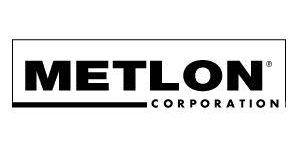 Since I have not written for a while I wanted to think about how I can deliver the greatest value at this time. My publisher suggested I write about how companies approach inventory levels in these uncertain times. What would affect inventory level decisions, as this is an asset or resource that would be the result of demand, planning and desired fulfillment capability? What drives the answer is mission or philosophy of how assets are allocated. How does a manager decide how to allocate limited resources to satisfy client needs and still remain profitable?
Since I have not written for a while I wanted to think about how I can deliver the greatest value at this time. My publisher suggested I write about how companies approach inventory levels in these uncertain times. What would affect inventory level decisions, as this is an asset or resource that would be the result of demand, planning and desired fulfillment capability? What drives the answer is mission or philosophy of how assets are allocated. How does a manager decide how to allocate limited resources to satisfy client needs and still remain profitable?
The answer lies in truly and accurately understanding the requirements of the client and the business decision to profitably maintain the inventory. What influences the direction is the agreement reached between client and vendor based on negotiation.
How can a manager in these challenging economic times satisfy the stakeholders of the enterprise? Realize that politics is utilization of the power to affect changes and thus control assets and behaviors.
When we first hear of politics, we are destined to think of the current presidential race or the behavior of Congress. The motivations of these professional politicians are first and foremost to get elected and then re-elected. How they may use their power and influence to benefit their constituents seems secondary. I don’t see the system significantly changing until there is appropriate campaign finance reform, term limits and regulation of the lobbyists.
But until any of us run for public election, our focus should remain on the profitable operations of our organizations. We can understand political power is exercised through our daily negotiations. Successful negotiation is based upon the ability to separate the people from the problems, focus on interests rather than positions, invent options for mutual gain and utilize objective criteria.
The concept here espoused is derived from the book Getting to Yes, by Fisher and Ury of the Harvard Negotiation Project. While the book was first published 30 years ago, the principles remain unchanged. The concept of the “win-win” outcome is the essence of this work. So how is it done? How does one use politics, which is the power to affect change, to accomplish goals within or outside an organization? The solution is not difficult and can be ultimately more satisfying on a number of levels.
To be an effective negotiator, it is acceptable to be soft on the people but hard on problems. Think first about the person with whom you are negotiating instead of primarily focusing on the bottom line, and work on creating options for mutual gain. Invest the time to build the relationship so that you clearly understand what is important to the other side. Test your assumptions by asking “why?” or “why not?” Be aware that emotions and pressures will be evident. Put yourself in their position for a moment and listen to what they are saying from their perspective. Steven Covey advises that we seek to first understand before we can be understood.
Confidence and patience are key traits to a successful outcome. Resist the temptation to reach a quick solution until you have gained as fully an appreciation for the other’s viewpoint as possible. Quite often you may create a solution that can satisfy the other side without giving up much value. But you need to listen and understand before jumping to a conclusion. Remember that the viewpoint of the opposition is rooted in what they know. But there are also things they don’t know that can skew their impression and demands.
Herein lays a vast opportunity to create the win-win solution and a successful negotiation. Steve Jobs noted that creativity is based on the concept of connecting the dots going forward. Anyone can clearly identify the ship’s wake as you look backward. Jobs created in his mind the outcome that he desired: a MacBook Pro, an iPod, an iPad, etc. His interests reflected his values, and he wanted products that were compact, beautiful, intuitive and fun. He didn’t necessarily know at the point of creating the idea as to how the product was going to be designed, engineered and marketed profitably. He is called a visionary because he explained his product vision and demanded it become reality based on the future progress of his team.
Something obviously was done correctly, as Apple became the second most valuable company in the world according to market capitalization. Jobs did not rely on the solutions of the past. The value has been further increased by allowing development of applications that are either free or very low cost and continue to bring greater value to the clients.
The hard work in a negotiation is to obtain the facts and clearly define the reality. Look for opportunities to increase value by sometimes acting inconsistently with the expectations and perceptions of opponents. By offering something of value, you will build trust and foster a situation where the other side will be more comfortable in giving concessions.
Recently in setting up a new production program, I offered to purchase a piece of automatic equipment for the factory. This move was not requested, but I knew that the capital infusion would reduce a burden on the factory and was something that was affordable for me. This unexpected offer enabled other concessions to be granted, as it demonstrated my support and commitment to a successful and long-term relationship.
When encountering emotional reactions, deal with the emotions before moving forward. Could the opponent be under pressure of losing his or her job or underperforming and thus losing status, recognition or compensation? Re-focus on the interests of the parties and try to determine if another concession can be made that won’t negatively affect your opponent.
While this work may seem to be outside the realm of your responsibility, like it or not, chances of success are minimized if the issues are not addressed. Remember that usually the “presenting” problem is not the real problem. To discover the truth and determine an accurate diagnosis, you may need to dig some levels deeper. When you hit on the real issue, then you direct your power and ability to resolve the cause of the problem and not just put a bandage on the symptom. Patience can be a profitable virtue.
Richard Farson in Management of the Absurd points out that every management act is a political act because, in some manner, the action will reinforce or redistribute power. And power is the ability to affect change. What you want to change will be based upon your mission and strategy. How you change and which tactics are used will be a function of your personality, depth of understanding and the culture of your organization. To be most effective, endeavor to identify the interests of the other party. If they insist on a position as opposed to an interest, you must then ask why they are adopting that position.
When my daughter was eight years old, I arranged for her the honor of throwing out the first pitch at a Reading Phillies minor league game. My daughter took the position that she refused to do this. When I asked why, she said that she didn’t want the batter hitting the ball back to her. Her position was based on the assumption that she was facing a live batter. I couldn’t blame her and then described how her perspective was inaccurate. She relinquished her position and later threw the ball to the friendly catcher.
Sales or negotiations are typically about creating solutions to needs. Children are often more candid about their fears than adults, so you have to work harder to ascertain the reasons for positions. Understanding the motivation of others and recognizing their interests will help in building trust. With trust there is very little that cannot be accomplished.
One way to build better relationships and credibility is to spend time with others in a non-pressure environment. Two great opportunities are available in 2012. The NAUMD convention and exposition will take place at the Rio in Las Vegas from March 9 to 12. Go to www.naumd.com/events for registration and more information. The American Apparel Producers Network annual meeting will occur from May 6 to 8 at the Eden Roc Renaissance in Miami Beach. Go to www.aapnetwork.net and click on “2012 annual meeting- Creating our future and financing your growth.”
I will be attending both meetings to reconnect with people throughout our supply chain. There’s a lot of down time for networking that will enhance better relationships and profitable business opportunities.












